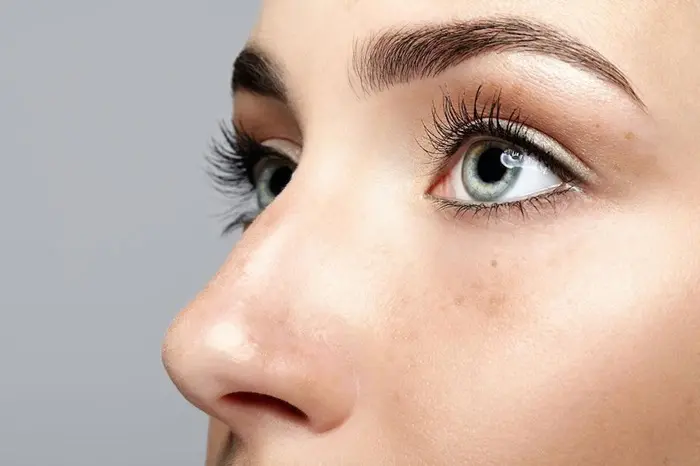Body dysmorphic disorder (BDD) is a psychiatric condition characterized by an excessive preoccupation with a perceived defect in one’s appearance. Patients suffering from BDD often seek cosmetic surgery in an attempt to correct their imagined flaws. Rhinoplasty, a popular cosmetic procedure to reshape or reconstruct the nose, is among the most frequently requested surgeries globally. This study investigates the prevalence of BDD in patients seeking rhinoplasty in Saudi Arabia and highlights the need for screening and psychological evaluation to improve surgical outcomes.
BDD is a disorder where individuals are overly concerned about minor or non-existent flaws in their physical appearance. These concerns often lead to significant emotional distress, functional impairments, and can contribute to mental health challenges, including depression and anxiety, and in extreme cases, suicidal tendencies. Rhinoplasty, being one of the most common aesthetic surgeries, is a frequent choice for patients with BDD, who believe that altering their appearance will improve their self-esteem. However, studies have shown that patients with BDD often experience dissatisfaction with their results, which may exacerbate their symptoms post-surgery.
In Saudi Arabia, the prevalence of BDD in the general population has been reported to be 8.8%, higher than in countries like the United States and Germany. With rhinoplasty being a prominent request in the country, understanding the link between BDD and rhinoplasty is crucial. This study aims to assess the prevalence of BDD among individuals desiring rhinoplasty and underline the importance of integrating psychological assessments into preoperative care.
This cross-sectional study utilized the Body Dysmorphic Disorder Questionnaire-Aesthetic Surgery (BDDQ-AS) to screen for BDD in 340 participants who expressed an interest in rhinoplasty. Participants were recruited from otolaryngology clinics between October 30, 2023, and January 17, 2024. The BDDQ-AS is a seven-item questionnaire designed to evaluate concerns about appearance, preoccupation with perceived defects, and the level of distress caused by these issues.
The inclusion criteria for the study were patients aged 18 years or older who expressed a desire for rhinoplasty. Exclusion criteria included individuals who had previously undergone rhinoplasty or those seeking functional rather than cosmetic surgery.
Out of 389 initial responses, 340 participants were included after exclusion criteria were applied. The majority of participants were female (83.8%), with a significant portion aged between 18 and 23 years (39.7%). Among these, 143 individuals (43.3%) expressed a desire for rhinoplasty.
The study found that 37.6% of participants screened positive for BDD. Of those who expressed a desire for rhinoplasty, 53.1% were diagnosed with BDD based on the BDDQ-AS screening. The association between BDD and the desire for rhinoplasty was statistically significant (p < 0.001).
Logistic regression analysis revealed key predictors for BDD. Gender was found to be a significant factor, with females being more likely to screen positive for BDD (OR = 4.26, 95% CI: 1.99-10.3, p < 0.001). This suggests that females are more than four times as likely as males to experience BDD. Furthermore, the desire for rhinoplasty was strongly correlated with a higher likelihood of BDD (OR = 3.45, 95% CI: 2.15-5.59, p < 0.001), meaning individuals seeking rhinoplasty are over three times as likely to have BDD compared to those not interested in the procedure.
The study highlights the significant prevalence of BDD among individuals seeking rhinoplasty. Our findings show that over half of the patients desiring rhinoplasty in this sample exhibited signs of BDD, suggesting a potential mismatch between patients’ expectations and reality. As BDD is a psychological condition, it is essential to identify it early to prevent unnecessary surgeries, manage patient expectations, and improve satisfaction with cosmetic procedures.
BDD is particularly prevalent among females, a result consistent with existing literature suggesting that women are more likely to experience body image concerns. The desire for rhinoplasty was also strongly associated with BDD, emphasizing the importance of psychological evaluation for patients considering cosmetic surgery. The high prevalence of BDD in this cohort underscores the need for a more structured approach to preoperative screening in aesthetic surgery clinics, with a focus on addressing underlying psychological issues before proceeding with surgery.
Our study underlines the importance of integrating mental health assessments into the preoperative screening process for rhinoplasty candidates. Given the high prevalence of BDD among individuals desiring rhinoplasty, it is essential for surgeons to incorporate psychological evaluations to identify and address potential body image concerns. While psychological support should be offered to patients with significant dissatisfaction or persistent BDD symptoms, it is equally crucial to ensure that those with BDD do not undergo surgery that is unlikely to result in improved psychological outcomes.
This research contributes to the growing recognition of the importance of mental health in cosmetic surgery and reinforces the need for comprehensive preoperative screening to safeguard both patient satisfaction and surgical success.
You Might Be Interested In:

